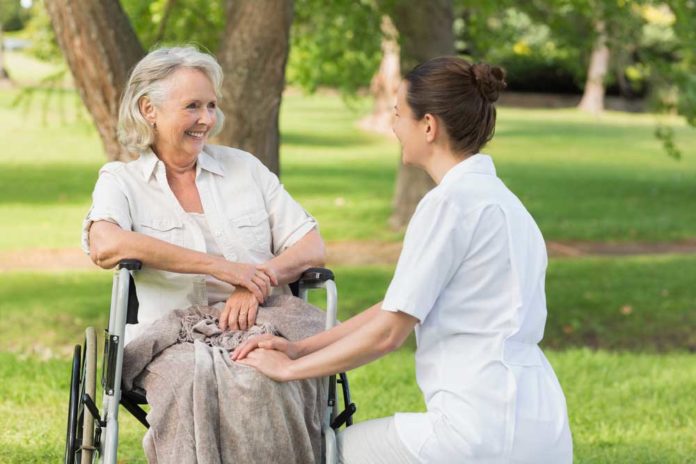“Recent studies have shown that one out of four older Americans suffer from poor nutrition.”
– National Resource Center on Nutrition, Physical Activity & Aging, FIU
Normally, about 70% of US adults over the age of 65 years will need some type of long-term senior care during their lifetime, according to the National Institutes of Health (NIH). No matter what length of time senior care is needed—for a few weeks after surgery or a few years toward the end of life—senior nutrition and the foods seniors can access will always be vitally important.
Senior Nutrition
Calorie needs change as you age. With advanced age, it’s important to provide balanced meals that are quick to prepare and easy to eat. For most elderly adults, maintaining current body weight is of utmost concern, as often appetite decreases during the aging process. Maintaining lean muscle and strength are two of the most important senior nutrition concerns, because this will help maintain mobility and independence for senior loved ones.
The best way to maintain lean muscle strength and mobility for senior adults is to ensure daily consumption of lean proteins like chicken, fish, shrimp, turkey, lean pork or beef, and dairy products like yogurt and cheese. Consuming plenty of fruits and vegetables is also essential during a period of long-term senior care. When it comes to refined grains, refined sugar, potatoes, and desserts, it’s important to keep these foods as a smaller portion for good senior nutrition, because these foods can contribute to the development or worsening of heart disease, diabetes, high blood pressure, and cancer. The best grains to choose are whole grains, such as wild, long grain rice, quinoa, whole wheat pasta, and whole grain baked goods, such as pumpernickel or rye bread.
The most important thing to consider with senior nutrition, however, is personal food preference. If an individual enjoys a food, then they will be more likely to consume adequate amounts to meet their nutritional needs.
Long-Term Senior Nutrition
With nutrition for seniors in mind, eating a balanced diet with healthy, whole and unprocessed foods will help ensure stable blood sugars, energy levels, and improved quality of life. Avoiding too many sweets, desserts, and foods high in simple sugars such as juice, cookies, and sugar-sweetened soft drinks is a primary recommendation for senior adults by the Administration on Aging’s (AoA) Elderly Nutrition Program. Focusing on foods high in fiber, like fruits, vegetables, and whole grains is also a recommendation for senior nutrition.
Barriers to Healthy Senior Nutrition
One of the major barriers for balanced senior nutrition is dental health. Many elderly adults have dentures, which can be a barrier to eating certain foods if they are improperly fitted. Another barrier is access to transportation to and from the grocery store, or their ability to drive a car. Vision impairment, decreased mobility and a variety of other age-related issues can prevent a senior’s access to nutritious foods. Home-bound elderly need all the help they can get when it comes to getting healthy senior nutrition each day.
Many elderly adults have disabilities or functional impairments and are unable to shop for groceries or cook for themselves. Medications can contribute to a loss of appetite, decreased perception of taste and smell, as well as difficult or painful swallowing, nausea and vomiting. And some medications can affect the absorption and use of nutrients, making it vitally important to ensure healthy senior nutrition each and every day.
When it comes to long-term senior nutrition, it’s important to ensure that aspiration of liquids or foods is not a problem as a senior adult. Often, a small amount of beverages and liquid foods such as soups or broths can escape into the windpipe, and enter the lungs, causing a condition called aspiration pneumonia. It’s very easy to determine if this is a problem or not by performing a barium swallow x-ray.
The United States Department of Agriculture provides funding for a variety of different food assistance programs for the elderly, such as the Food Stamp Program, the Nutrition Program for the Elderly, Commodity Supplemental Food Program-Elderly, Child and Adult Care Food Program, and the Food Distribution on Indian Reservations. But even still, these programs do not reach all seniors.






